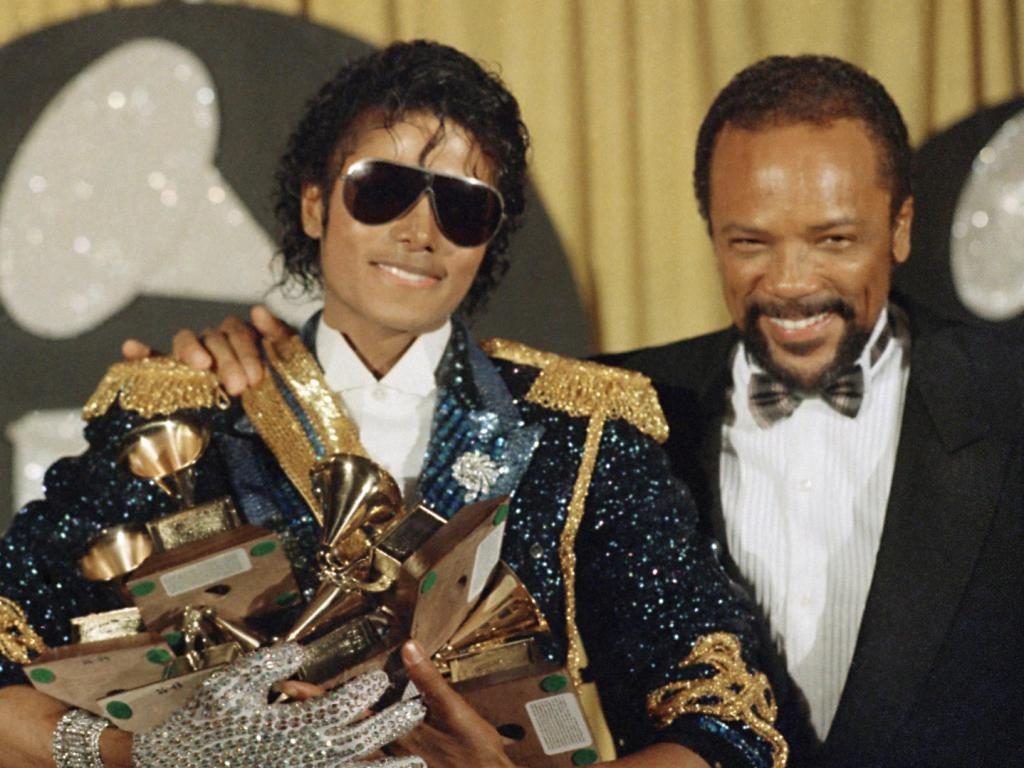
Quincy Jones cheated death four times — twice in 1974 due to a brain aneurysm, and twice again in 2015 from diabetic complications — before passing on last November 3 at age 91.
But his life as a musician, composer, arranger, and producer marks one of the most colorful and exciting chapters in music history.
Fans and the curious alike who’d like to know more about him should watch “Quincy,” a 2018 documentary currently on Netflix.
It has a wealth of information on how he overcomes a hard life in Chicago and finds his calling — first as a trumpet player in the bands of Lionel Hampton and Dizzy Gillespie.

His desire to learn arranging for an orchestra leads him to Paris to study with the French conductor/composer Nadia Boulanger. He recalls what she imparted to him: “There are only 12 notes… I want you to know what everybody did with those 12.”
In 1964, Frank Sinatra, who was then getting ready for a new album with Count Basie and his orchestra, asked Jones to arrange it. One of the best tracks from the album, It Might as Well Be Swing, is “Fly Me to the Moon.”
‘Killer Q’ posse
Many more albums later, Michael Jackson asked Jones if he could find a producer for a new solo album. Jones ends up producing three of Jackson’s biggest-selling albums: Off the Wall, Thriller, and Bad.
Jones recalls working with Jackson on Off the Wall: “When he was ready to record, I got my ‘Killer Q’ posse together — Rod “Worms” Temperton, one of the greatest songwriters who ever lived; (sound engineer) Bruce “Svensk” Swedien; (keyboardist) Greg “Mouse” Phillinganes; (bassist) Louis “Thunder Thumbs” Johnson; (drummer) John “JR” Robinson; (percussionist) Paulhino Da Costa; (trumpeter) Jerry Hey; and many others. We attacked that record.”
In the docu, Jones is seen grooving while seated at the mixing board while listening to the intro to “Rock with You” (written by Temperton).
“We tried all kinds of things I’d learned over the years to help him (Jackson) with his artistic growth. Things like dropping keys just a minor third to give him more flexibility and a more mature range,” Jones recounts. “He was so shy, sometimes he’d sit down and sing behind the couch with his back to me.”
While recording Off the Wall, Jones says: “My feeling is, always leave at least 20 to 30 percent of room for the Lord to walk to the room…because you’re leaving room for the magic. Records are about capturing magic, real magical moments and capturing them on tape.
“Love is the other word, when love is in the studio, that contributes more to the magic in the studio than anything else.”
The making of Thriller, “in a little more than two months, was like riding a rocket,” says Jones. “Everything about it was done at hyper-speed. Rod Temperton, who also co-wrote several of the songs, and I listened to nearly 600 songs before picking a dozen we liked. We all worked ourselves into a near frenzy.”
On choosing the tracks which made the final cut on Thriller:
“I always sit down in the corner, drop the ego, and say, ‘What are the four weakest songs?’ Relatively. You have to be honest about that.
“And I took out some big songs. Mike Sembello wrote ‘Carousel.’ Toto sent me some songs. I wasn’t really crazy about the songs they sent, but … Rod (Temperton) and I were at home and we left the tape on, and after about 20 minutes we heard [humming the melody of “Human Nature”], ‘Durupdup-bom…’
“Didn’t have the lyrics on, and I said, ‘That’s it.’ I was looking for a harmonic kaleidoscope. I was looking for that to follow the mantra of ‘Billie Jean’ with just three chords in it, you know, and it worked, man, it worked… I was so happy.”
One of several Jones tribute stories on bbc.com has an interesting anecdote on the long drum intro to “Billie Jean”:
Jones: “I said, ‘Michael we’ve got to cut that intro.’ He said, ‘But that’s the jelly! That’s what makes me want to dance.’ And when Michael Jackson tells you, “That’s what makes me want to dance,’ well, the rest of us just have to shut up.
“Jones kept the arrangement lean and funky. He even instructed sound engineer Bruce Swedien to create a drum sound with a ‘sonic personality’ that no one had ever heard before. The result is one of the most recognizable intros in the history of pop.”

Yet Jackson didn’t always have his way.
In one video interview making the rounds on YouTube, Jones says that while recording “Don’t Stop till You Get Enough” (the first track on Off the Wall), Jackson wanted the violins removed.
Jones had to put his foot down since he knew the strings arrangement was the track’s identifying hook. “I said, ‘No way … You don’t tell me what to do.’”
In another video interview, conducted by the young singer-songwriter Khalid for GQ, Jones says one of his insights from a career-spanning 70 years is: “The singer’s the messenger, the songs are the secret. A great song can make the worst singer in the world a star, and a bad song can’t be saved by the three greatest singers in the world.”
Image credits: Chris Pizzello/Invision/AP. File






